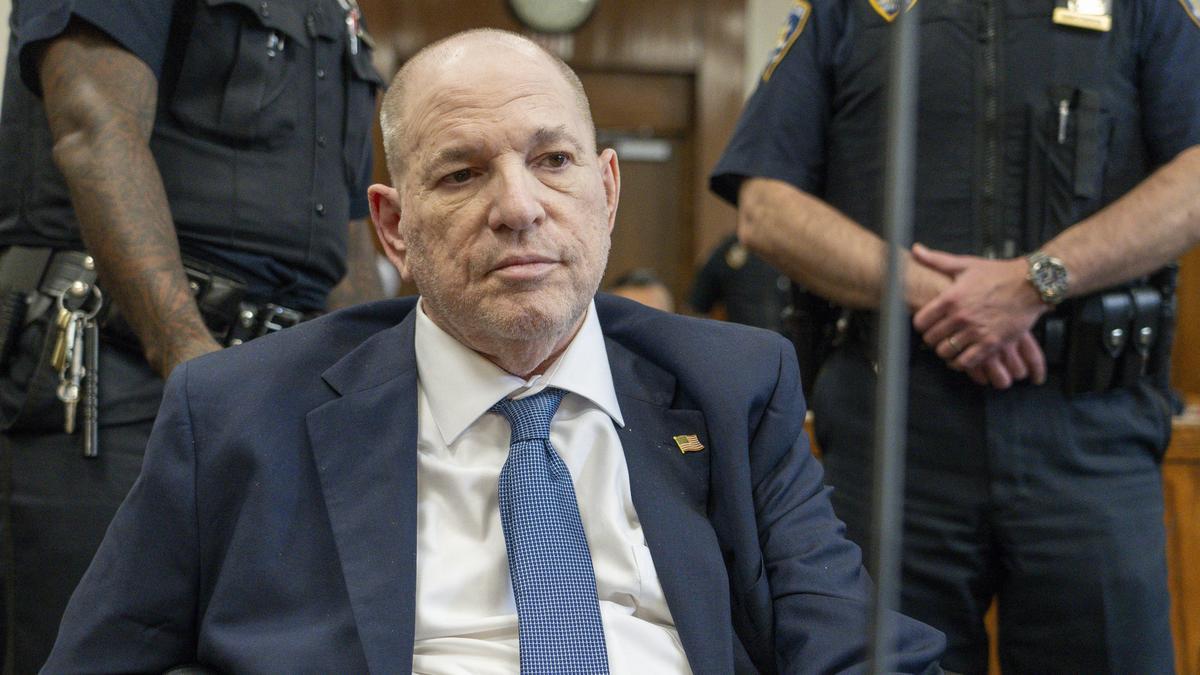
In a significant development in the Harvey Weinstein saga, the disgraced former Hollywood mogul’s legal team has launched an appeal, asserting that he was denied a fair trial when he was convicted of rape and sexual assault in Los Angeles in 2022. This conviction resulted in a 16-year prison sentence for Weinstein.
The appeal, filed on Friday, was brought before California’s Second District Court of Appeal. It arrives just six weeks after the New York Court of Appeals overturned Weinstein’s landmark #MeToo conviction, which had sentenced him to 23 years of incarceration. This decision in New York breathed new life into Weinstein’s battle for his freedom, and his defense team is now carrying that momentum into the California courts.
Weinstein’s lawyers argue that key pieces of evidence were unjustly excluded during the trial. They contend that the trial judge erred by not allowing evidence that could have demonstrated a consensual sexual relationship between the Italian model and actor, Evgeniya Chernyshova, and Pascal Vicedomini, the director of the LA Italia Film Festival. This festival had brought both Weinstein and Chernyshova to Los Angeles in 2013, at the time of the alleged rape.
The defense argues that the exclusion of this evidence deprived Weinstein of his constitutional rights to present a complete defense, leading to what they describe as a miscarriage of justice. Furthermore, Weinstein’s attorneys take issue with the trial judge’s decision to let the jury hear about Weinstein’s previous conviction in New York, which has since been vacated. They argue that this predisposed the jury against Weinstein, painting him as a habitual offender based on allegations of further sexual assaults for which he had not been charged.
“The introduction of this excessive, cumulative, and remote evidence of prior ‘sexual assaults’ simply signaled to the jury that the Defendant was a bad man who should be convicted of something irrespective of whether the prosecution proved its case,” the defense brief stated.
During the LA trial, Weinstein faced charges of sexually assaulting four women but was ultimately convicted only for the assault on Chernyshova. She testified that Weinstein intruded into her hotel room uninvited during the LA Italia Film Festival.
Weinstein’s defense team further criticizes Superior Court Judge Lisa B. Lench for preventing them from presenting Facebook messages that allegedly showed a sexual relationship between Chernyshova and Vicedomini. The defense contends that these messages would have proven that both Chernyshova and Vicedomini perjured themselves when they testified under oath that they were merely friends and professional colleagues.
. This evidence, they argue, would have supported the defense’s claim that Chernyshova was not in her hotel room at the time of the alleged assault but was with Vicedomini instead.
It is important to note that these arguments are not new; they were raised by Weinstein’s defense during a motion for a new trial, which Judge Lench ultimately rejected prior to Weinstein’s sentencing. Nevertheless, Weinstein has since strengthened his legal team, engaging Jennifer Bonjean, a prominent Chicago-based appellate attorney. Bonjean’s successful appeal in Bill Cosby’s sexual assault case led to the permanent overturning of Cosby’s conviction in Pennsylvania.
Chernyshova, who was known as Jane Doe 1 during the trial, was publicly named post-trial with her consent. Her attorney, David Ring, dismissed the appeal on Friday, stating via email that Weinstein’s new arguments are mere repetitions of previously rejected claims. “We are of the strong opinion that the trial court vetted the evidence appropriately and made all the correct decisions in its evidentiary rulings. We are confident that Weinstein’s appeal will be denied and he will spend many years in prison,” Ring asserted.
Adding another layer to the defense’s argument, the brief included affidavits from three jurors who expressed regret over their unanimous guilty verdict. The jurors purportedly indicated that the absence of evidence suggesting a romantic link between Chernyshova and Vicedomini influenced their decision-making process. Had they been privy to such evidence, it might have altered their verdict.
Furthermore, Weinstein’s attorneys claim that Chernyshova’s subsequent lawsuit, filed shortly after the guilty verdict, should have been grounds for questioning her financial motives during the trial. They argue that this lawsuit underscores the necessity of investigating potential bias due to financial incentives.
The legal battle continues as the prosecution has until August 6 to file its response to Weinstein’s appeal. Weinstein’s legal team initially filed a notice of appeal in April 2023, and after several extensions, submitted their detailed brief on Friday. With the stakes high and the implications significant, all eyes will be on the California appeals court as it deliberates on whether Weinstein received a fair trial.












